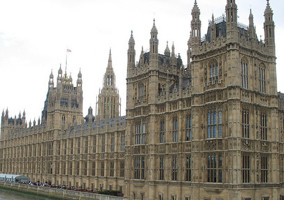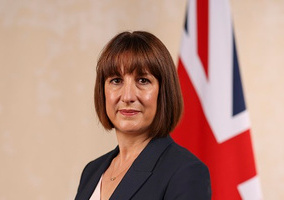A new survey by the Charity Finance Group (CFG) depicts a “stark” impact of the rise in employers’ national insurance contributions (NICs) on charities a year after its announcement.
In her October 2024 budget, chancellor Rachel Reeves announced that the rate of employers’ NICs would increase to 15% from April 2025, which umbrella body NCVO estimated would cost the charity sector an extra £1.4bn per year.
In CFG’s survey of 54 charity leaders published this week, over three-quarters of respondents reported a worse financial position than a year ago, while six in 10 said they are running deficits.
Over a third of respondents said they had made staff redundant in the past year, with a similar number cancelling plans for new hires, while half had not filled vacant positions and one in five had frozen or reduced salaries.
Meanwhile, just under four in 10 said they had avoided taking any staffing actions, but several warned they might consider such measures in the coming year.
Over one-fifth of respondents said they had reduced or closed services, while a similar number had cancelled plans for new services.
Some respondents also reported postponing building maintenance, reducing travel budgets and cutting IT spending to manage costs.
CFG’s survey reads: “The human cost of these cuts could be stark, as when charities reduce or cease services, vulnerable people including those experiencing homelessness, mental health crises, domestic abuse or food insecurity, may be left without vital support.”
‘Unprecedented financial strain’
Over half of respondents reported having “slightly” worse finances now than in October 2024, while a further two in 10 said they were “significantly” worse.
Half of respondents recorded a deficit in 2024-25 for at least the second year running, and one in 10 faced a deficit for the first time.
The survey says that among the three in 10 respondents maintaining a surplus, several noted this was only achieved through “unsustainable measures such as selling property assets or receiving one-off endowments that masked underlying deficits”.
Overall, just under half of respondents described the rise in employers’ NICs as causing “a major impact”, while over one-third said the impact was “moderate”.
This compares to three in 10 respondents who said general inflation was having “a major impact” on their charity’s finances, with nearly six in 10 reporting the impact of inflation as being “moderate”.
“Charities said they were also struggling with the triple whammy of high inflation (96%), increased energy costs (49%) and the rise in the national living wage (59%),” the survey reads.
“These pressures are hitting simultaneously, causing unprecedented financial strain which, in some cases, is insurmountable.”
Further cuts expected
To deal with the pressures, the majority of respondents have sought new funding sources, but have not necessarily been successful in doing so.
One respondent pointed out that NHS commissioners “have their hands tied, so a larger proportion of services is being funded by the charity”.
Another, who tried to increase their charity’s major donor giving and legacies, said it was “proving difficult and there’s a long time delay [to realising the benefits]”.
One said: “We’ve tried to absorb some costs, but have also raised more income through increased admission prices.
“This can't keep on being repeated, so cost-cutting is likely to be needed if conditions don’t improve.”
The survey says that looking ahead, “the picture remains bleak”, with almost two-thirds of respondents anticipating the need for further cost-reduction measures in the next six to 12 months.
“I think the funding gap is going to get bigger, and we’ll be facing significant cost pressures and need to use reserves to fund increases in minimum wages and NICs,” one respondent warned.
When asked what would be most helpful, most respondents called for government relief packages for the NICs increase and increased grant funding from trusts and foundations.
One respondent said: “I think the future is bleak for charities at the moment, we’re already stretched and lean, and further cost pressures will magnify the problems.”












